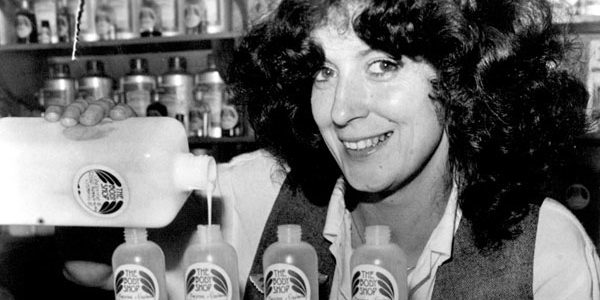You might know that I am currently writing a book that celebrates the Legacy of the late Anita Roddick, Social Activist and Founder of The Body Shop.
She often claims that her early success was a series of fortunate accidents. But I know she was a woman ahead of her time.
The key to her early success relied on her frugality. As I re-iterate the saying in my business course – you take care of the pennies and the pounds take care of themselves. Every dollar counts when you are starting your small business. Developing an early discipline of ensuring your money is spent in the best possible way and negotiating every deal, while paying your bills on time and managing your cash flow will be the start of organisational culture that values money.
When setting up the first of The Body Shop outlet in Brighton in March 1976, Anita’s business acumen came from the values she learned from her mother Gilda and the little money she actually had to spend to create her business. There was no grand design, no big picture, just a desire to earn money and disrupt the beauty industry that she felt was exploiting women with false claims and excessive packaging.
In her book Body and Soul she recalled “Everything was determined by money, or the lack of it. A local student designed the logo for 25 pounds, and I got friends to help with filling the bottles and handwriting the labels. I painted the whole place dark green not because I wanted to make an environmental statement – the word “green” was not a metaphor for the movement then – but because it was the only colour that would cover up all the damp patches on the wall. The cheapest containers I could find were the plastic bottles used by the hospital to collect urine sample, but I couldn’t afford to buy enough so I thought I would get around the problem by offering to refill empty containers or fill customers’ own bottles. In this way we started recycling, reusing materials long before it became ecologically fashionable. Every element of our success was really due to the fact that we had no money. I ran my shop just the way my mother ran her house in the Second World War – refilling, re-using and recycling everything – and what we did in that first year was a thumbprint of the differences that would set my company apart.”
And that was the difference. While many entrepreneurs lose sight of what it took to make them a success, Anita could see the value – from a cost and reputation perspective of maintaining this commitment to frugality.
If you start and stay lean your small business will grow faster and smarter. And as sustainability has outlived the idea of it being ‘fashionable’, there could be reputation benefits for your small business.
How do you you use frugality in your business?







